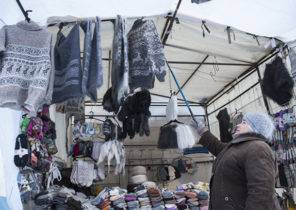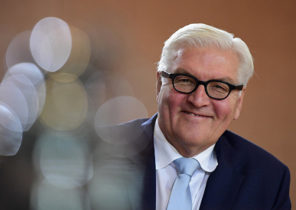
To contact the editor in chief of Reuters Steve Adler wrote, as Reuters is going to work with the administration to trump.
The first 12 days of the presidency of the trump (Yes, just this much!) was all memorable — and especially difficult for all of us in the news business. It’s not every day the US President calls journalists “one of the most dishonest people on Earth”, and his chief Advisor for strategic Affairs said that media is the “opposition party”. It is not surprising that hung in the air question: how to write about the new White house administration?
And what is the response to Reuters? To be in opposition? To please the administration? Boycott her briefings? Use our platform to support media? There are some ideas, and some publications they will fit — but not Reuters. We already know what to do because we do it every day around the world.
I will say the obvious: Reuters is a global news organization that is unbiased and independent news broadcasts from more than 100 countries, including those where journalism is not encouraged and is often under threat. I am extremely proud of our work in countries such as Turkey, Philippines, Egypt, Iraq, Yemen, Thailand, China, Zimbabwe and Russia, in States where we sometimes have to deal simultaneously with censorship, criminal prosecution, refusal of visas, and even threats of violence against journalists.
We respond to these challenges the fact that we do everything possible to protect our journalists, those that dedicate themselves to fair and impartial journalism, stubbornly collect remote information and hold no parties. We very rarely write about themselves and their problems and very often those things that have an impact on the business and lives of our readers and viewers.
We don’t know how severe will be the attack of the administration of the trump in the future and don’t know if they follow them some limitations of our work. But we know we have to follow the same principles that govern our work around the world.
What to do
— Write about what matters to people’s lives, and provide the facts that will help them make better decisions.
To seek out new sources of information: if one door closes, open another.
— To stop paying attention to the press and to worry less about official information access. These things have never been so important. We are well publicized events in Iran with virtually no official access. We have our own sources.
— To explore the country from the inside and learn how people live, what they think helps and hinders, and how they perceive the government and its actions — not us.
— To keep on hand the basic principles of the Thomson Reuters Trust and to remember that “loyalty to the principles, independence and freedom from bias of Reuters must be upheld at all times and fully”.
What not to do
Never give in to intimidation, but:
not to get into unnecessary conflicts and not to become the object of news. We may be interested in the wrong side, but the audience is rare, and her sympathy may not be on our side;
— not to show publicly is understandable daily frustration. In many countries we discuss in the editorial, to be able to continue working without being suspected of personal preferences. Similarly, we will work in the US;
— not to exaggerate in the reports: we now have the opportunity to put into practice all the skills that we got much more difficult to work places, and become an example to the world — and thus provide more fresh, useful and complete information than any other news organization around the world.
This is our mission in the US and around the world. We have global significance, because we are engaged in professional journalism, at the same time fearless and impartial. When we make mistakes, and it happens, we correct them quickly and completely. When we don’t know something, we say so. When we hear rumors, we monitor and share only if you are sure of the authenticity. We value speed, but not haste: if you want to check something, we spend time and check. We try to avoid “exclusives on time” — when information was given first, but incorrect. We work with calm fidelity to the principles not only because it is written in our rulebook, but also because for more than 165 years, this has enabled us to do their work as efficiently.







